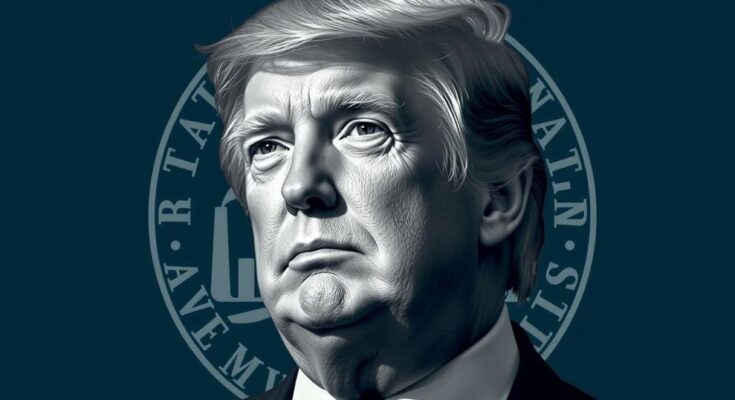President-elect Trump has appointed Chris Wright, a fossil fuel proponent and climate change skeptic, as Secretary of Energy. His leadership is expected to focus on boosting oil and gas production and electricity generation while opposing global climate initiatives. This selection occurs amidst significant oil output levels achieved during the Biden administration, indicating a potential future increase under Wright’s policies.
President-elect Donald Trump has selected Chris Wright, a prominent advocate for fossil fuels and a skeptic of climate change, to helm the Department of Energy. As the founder and CEO of Liberty Energy, Wright is poised to promote policies aimed at enhancing oil and gas production in line with Trump’s energy agenda. His leadership will likely emphasize increasing electricity generation to meet rising demands, marking a significant pivot in the energy landscape. Wright’s previous comments reflect a dismissal of climate change concerns, echoing sentiments against global collaborations aimed at addressing environmental issues. Wright has gained notoriety for controversial statements and actions, such as consuming fracking fluid in a public demonstration to counter safety claims. His lack of political experience may raise questions about the efficacy of his appointment; however, he has articulated views advocating for fossil fuel production as a mechanism for alleviating poverty. The Department of Energy is tasked with various responsibilities including energy diplomacy and nuclear waste management, areas where Wright’s expertise will be tested. Amid this shift, it is noteworthy that U.S. oil output had reached unprecedented levels during the Biden administration, suggesting that Wright’s policies could further augment production in the coming years. Thus, the energy sector is on the brink of a transformation guided by the incoming administration’s commitment to fossil fuels, ensuring a challenging debate on climate policy will continue.
The appointment of a secretary for the Department of Energy holds significant implications for U.S. energy policy and climate strategy. The department oversees critical aspects of national energy management, including the Strategic Petroleum Reserve and nuclear waste management. Additionally, the leadership of the Department of Energy influences international energy diplomacy and supports initiatives for advancing clean energy technologies. Given the current global emphasis on climate change, the appointment of Chris Wright, a fossil fuel proponent and climate change denier, signals a departure from recent efforts aimed at reducing carbon emissions and transitioning to renewable energy sources.
In conclusion, the selection of Chris Wright to lead the Department of Energy by President-elect Donald Trump epitomizes a decisive shift towards fossil fuel advocacy within the U.S. government. His previous remarks regarding climate crises and public actions designed to challenge environmental concerns may underlie a controversial tenure focused on increasing fossil fuel production. As this decision unfolds, it is poised to impact both domestic energy policies and the broader conversation concerning climate change in the United States.
Original Source: al24news.com




